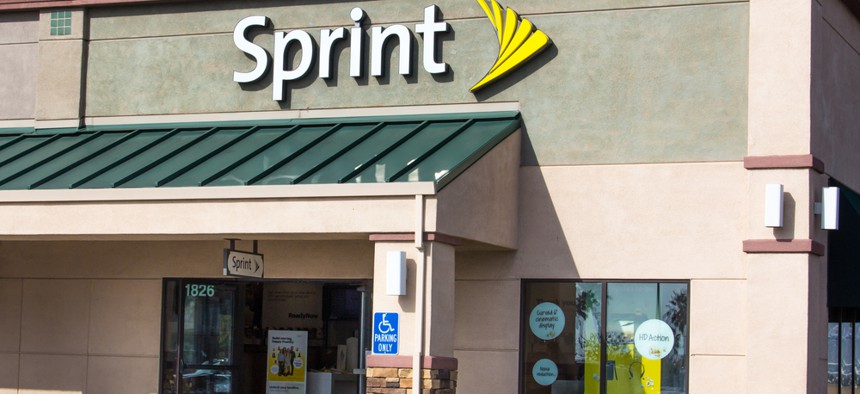
Ken Wolter / Shutterstock.com
FCC Plans Giant Fine of Sprint for Bogus Phone Charges
The cell-phone company billed customers for services they never asked for, according to an investigation by federal regulators.
The Federal Communications Commission is preparing to fine Sprint $105 million for overcharging its customers, according to agency officials.
The fine would be tied for the largest the FCC has ever imposed on a company. In October, AT&T agreed to pay $105 million over similar allegations.
According to the enforcement action, which hasn't been finalized, Sprint billed customers for third-party services it knew they hadn't asked for and didn't want. The planned fine is being reviewed by all five FCC commissioners, but they haven't voted to take action yet, the agency officials said. It's unclear whether Sprint and the FCC are still engaged in settlement talks.
Neil Grace, a spokesman for FCC Chairman Tom Wheeler, declined to comment. A Sprint spokesman said the company doesn't "comment on rumors and speculation."
The Consumer Financial Protection Bureau is also mulling action against Sprint over the issue, according to the FCC officials. A CFPB spokesman declined to comment.
In recent years, members of Congress and federal regulators have been trying to combat "cramming"—the practice of placing unwanted charges on phone bills. The Federal Trade Commission has brought numerous cases against third-party scammers, but regulators are only just beginning to go after the phone companies themselves.
Earlier this year, the Senate Commerce Committee released a report finding that third-party charges on cell-phone bills is a billion-dollar industry, much of it fraudulent. The major carriers all keep a portion of the revenue for themselves, according to the Senate report.
Those third-party services are often "premium" text messages like horoscopes or celebrity gossip. Consumers often don't realize they're being billed for the spam because the charges are buried on their monthly bills under misleading titles, according to the Senate investigation.
This article appears in the December 16, 2014 edition of NJ Daily.
(Image via Ken Wolter / Shutterstock.com )







